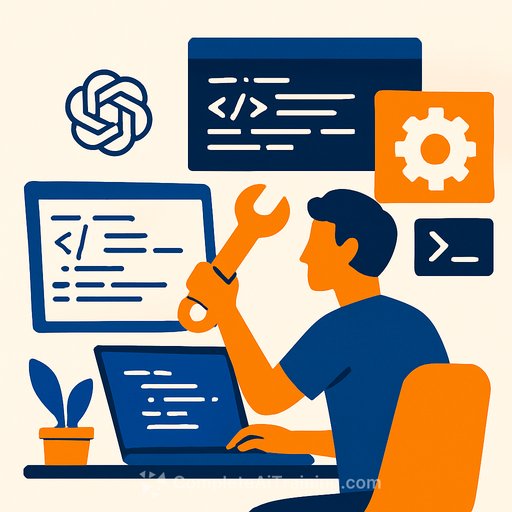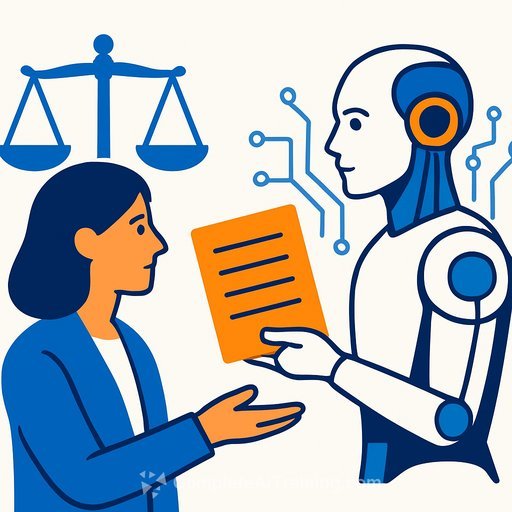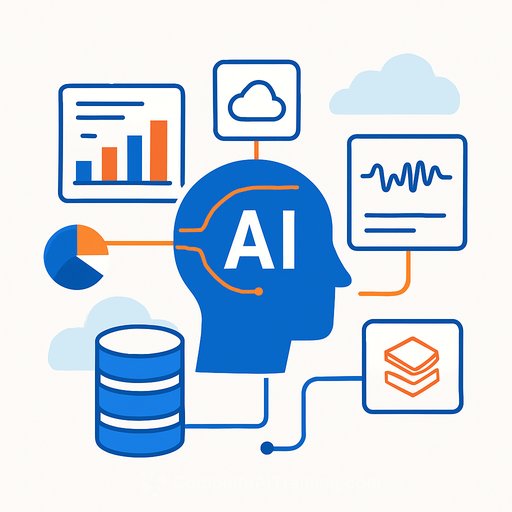OpenAI’s Codex CLI Adds New Features to Boost AI-Assisted Software Development
OpenAI has expanded the capabilities of its Codex command-line interface (CLI), providing developers with improved tools for AI-assisted coding. The updated CLI is now available globally via npm install -g @openai/codex, enabling faster code generation and more effective debugging.
This update reflects ongoing efforts to increase developer productivity using AI. Since its 2021 launch, Codex has evolved from powering GitHub Copilot into a standalone CLI that allows engineers to interact directly with AI for tasks like generating boilerplate code, clarifying complex algorithms, and suggesting performance improvements in real time.
AI Adoption Accelerates in Software Development
The timing coincides with growing AI integration in DevOps workflows. Competing products like Google’s Duet AI, introduced in 2023, also target code completion, but OpenAI’s CLI stands out for its terminal-centric design. This makes it especially useful for developers working in shell environments or on cloud-native teams, helping to shorten development cycles and speed up releases.
Developer surveys highlight the trend: 70% of developers already use AI tools to assist coding, according to Stack Overflow’s 2023 survey. Productivity gains of up to 40% are reported with mature AI copilots, per McKinsey’s 2022 analysis. These tools help bridge skill gaps across different programming languages and frameworks by providing access to advanced coding techniques and reliable guidance.
Business Impact and Market Outlook
The enhanced Codex CLI offers enterprises a way to embed AI into engineering workflows, improving throughput while reducing costs. In sectors like fintech, rapid prototyping is key to staying competitive. For example, JPMorgan Chase reportedly cut build times by 30% after adopting AI coding assistants.
Market forecasts expect widespread AI adoption in development. Gartner projects that by 2026, 80% of enterprises will use generative AI models and APIs, driving a $10 billion market for development tools. Monetization strategies include tiered subscriptions, IDE integrations like Visual Studio Code, and white-label solutions embedded in SaaS platforms.
Security, Compliance, and Competition
Security remains a priority as CLI tools may process sensitive code. Organizations explore on-premises deployments and federated learning to limit exposure, aligning with regulations like the EU AI Act (2024). The competitive landscape is active, with challengers such as Anthropic’s Claude and Amazon’s CodeWhisperer gaining traction.
Compliance requirements are also tightening. The U.S. Executive Order on AI (October 2023) emphasizes safety, transparency, and governance. Ethical concerns include minimizing bias in code suggestions, supported by diverse training data and transparent reporting consistent with Codex’s original documentation.
Technical Enhancements and Future Directions
The latest release likely improves natural language understanding for more accurate code generation and error handling. It expands language support beyond Python and JavaScript, reflecting Codex's continuous evolution. Integration with CI/CD pipelines benefits from caching and batch processing to reduce API latency, based on recent research.
Looking ahead, plans include multimodal synthesis that combines code with visual elements, aligning with industry forecasts predicting a $500 billion AI market by 2027. Reliability remains critical, with verification tools and static analysis helping prevent AI-generated errors.
Hybrid deployment models that balance cloud and on-device inference can help control costs and improve resilience. In specialized sectors like healthcare, the CLI can facilitate secure script generation for data processing and clinical analytics while maintaining compliance.
Key Takeaways
- OpenAI’s Codex CLI update enhances AI-assisted coding with better generation and debugging capabilities.
- Wide adoption of AI in development is driving efficiency gains and transforming workflows.
- Security, compliance, and ethical use are critical considerations for enterprise deployment.
- Future innovations will expand capabilities and integration with diverse development environments.
FAQ
What are the new features in Codex CLI?
The updated CLI offers improved code generation and debugging tools. It is available as a globally installable npm package and aims to streamline coding workflows while enhancing accuracy.
How can businesses implement Codex CLI?
Start by installing via npm, then integrate the CLI with existing IDEs and pipelines. To protect sensitive code, consider local or on-premises hosting options.
What ethical considerations apply?
Focus on reducing bias, curating training datasets responsibly, and maintaining transparency in AI usage. These practices align with current industry standards and regulatory guidelines.
For developers interested in expanding their AI skills, explore comprehensive AI training courses available at Complete AI Training.
Your membership also unlocks:





